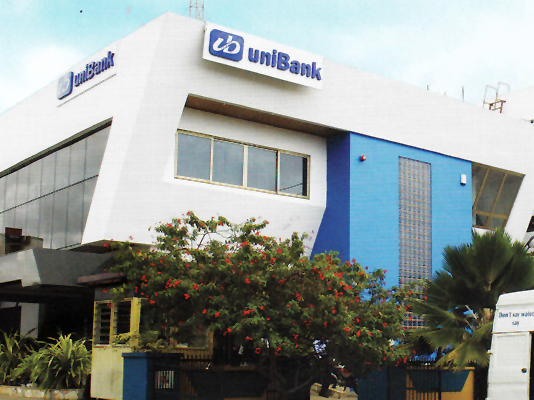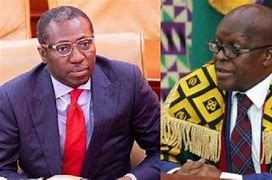
Former Governor of the Bank of Ghana and major shareholder of the defunct uniBank Ghana Limited, Dr Kwabena Duffuor, has sued the central bank over the revocation of uniBank’s operating licence.
In the statement of claim sighted by Myjoyonline.com, Dr Duffuor wants the High Court to order an injunction “restraining the [Bank of Ghana] from expropriating uniBank by its purported vesting of ‘good assets and liabilities’ of uniBank in Consolidated Bank Ghana Limited and the revocation of the licence of uniBank.”
He also wants a declaration that the licence purportedly granted the Consolidated Bank “was not granted in accordance with Act 930 and is null and void.”
uniBank’s operating licence was revoked on August 1, 2018, and along with four other banks, merged into the Consolidated Bank Ghana Limited. The regulator explained that the consolidation of uniBank, Sovereign Bank, Royal Bank, The Beige Bank and Construction Bank became inevitable following liquidity challenges and breach of regulations by some of the banks.
For uniBank, the Bank of Ghana Governor, Ernest Addison, explained that the indigenous bank’s Capital Adequacy Ratio (CAR) fell below 50% of the required minimum of 10% (i.e. below 5%).
According to the Bank of Ghana, the establishment of the Consolidated Bank is meant to protect Depositors funds, strengthen the financial system and rid the banking sector of fraud. The Bank of Ghana had mentioned, for instance, that Beige Bank and Sovereign Bank obtained operating licences by false pretences.
Click this link to access the full BoG statement on why the five banks were dissolved.
Before the revocation of uniBank’s licence on August 1, 2018, the Bank of Ghana appointed international audit firm, KPMG to ascertain the true financial condition of the bank, protect depositors’ funds and explore how the bank could be returned to viability within a period of no later than six months.
According to the Bank of Ghana, “KPMG’s reports confirmed, based on a detailed review and validation of the financial condition of uniBank that the bank was balance sheet insolvent at the time of their appointment as official administrator and remains so. As official administrator, KPMG made efforts to ascertain the assets and liabilities of the bank and evaluated options for turning around the bank’s fortunes.”
The Bank of Ghana further explained, ‘KPMG, however, found that the bank’s operations are not sustainable. Among other things, the bank’s interest income and other sources of income are insufficient to cover the associated cost of funds of underlying borrowings and liabilities, as well as overheads of about GH¢0.31 billion per annum.”

Dr Kwabena Duffuor
Dr Duffuor in his claim wants the High Court to declare that the purported revocation of the licence of uniBank is “null and void, being in breach of Articles 23 and 296 of the1992 Constitution of the Republic of Ghana.”

Before the suit dated August 20, shareholders of uniBank had issued a statement in which they cite KPMG for allegedly engaging in a conflict of interest arrangement with the banking regulator.
In a statement issued on Monday, August 20, 2018, the Shareholders state: “The recent appointment of KPMG as the Receiver in respect of some assets of uniBank and four other banks shows KPMG seeking to benefit from the report that it provided to the Bank of Ghana through a further paid engagement, a clear conflict of interest situation which does not put KPMG in a good light.”
Meanwhile, Dr. Addison said recently at the 18th Working Luncheon of the Ghana Association of Bankers (GBA) that the decision to collapse some five troubled banks was a painful decision.
According to the Governor, he had a personal relationship with the Managing Directors of the some of the banks that he had to withdraw licences from.
Dr Addison states that he took the drastic action in the larger interest of the banking sector and the economy.
Source: myjoyonline

